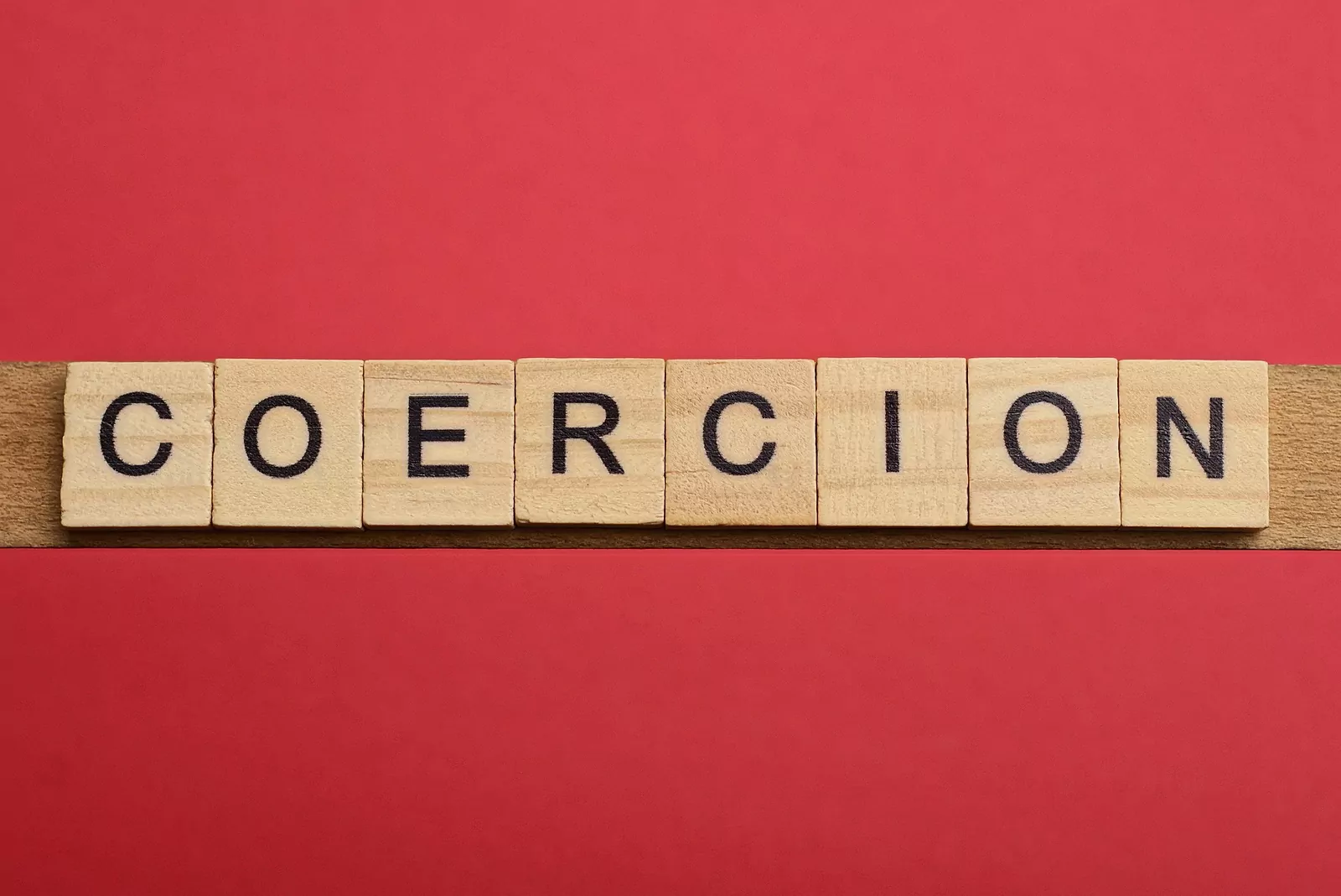 Coercion constituting domestic violence is, of course, an act of domestic violence. In order for a crime to be an act of domestic violence, there must be a special, pre-defined relationship between the persons involved.
Coercion constituting domestic violence is, of course, an act of domestic violence. In order for a crime to be an act of domestic violence, there must be a special, pre-defined relationship between the persons involved.
These relationships can include a spouse or former spouse, a relative by blood or marriage, someone with whom the person had or is having a dating relating relation, someone with whom the person has a child, the minor child of a person, or anyone who has been made the custodian or legal guardian of person’s minor child.
Dating relationship also has a specific meaning in the context of domestic violence – frequent, intimate associations primarily involving affectionate or sexual involvement.
Coercion, according to NRS 207.190, makes it unlawful for a person to, with the intent to compel another person to do something or abstain from doing something that the person has a right to either do or not do, do one of the following things:
If one of the these three things is done with the intent to force a person to do something or, conversely, to force a person to not do something, and you and the other person have one of the relationships outlined by the domestic violence laws, coercion constituting domestic violence may have occurred.
Nick Wooldridge has a long track record of representing clients accused of serious federal and state crimes in Nevada.
One of many examples could be a person preventing their partner from calling 911 after a physical altercation by breaking their cell phone.
The penalties for coercion constituting domestic violence vary depending on what form the coercion takes. If physical force or the immediate threat of physical force is used, then coercion constituting domestic violence is a Category B felony, punishable by imprisonment for one year to six years and a maximum fine of $5,000.00.
If no physical force (or immediate threat of physical force) is used, then coercion constituting domestic violence is a misdemeanor charge that can carry up to one year in jail, a $1,000.00 fine, or a combination of both. It’s important that you know that Nevada does not allow for reduced sentences for a defendant pleading guilty or no contest in a domestic violence case. This may be different from what you see on television or other media, or from what occurs in other states.
It’s important to have the best Las Vegas Criminal Defense attorneys on your side when going through a domestic violence case so that your rights are protected and you receive the best possible outcome – call us today for a free consultation so that we can begin reviewing and discussing your case with you.
If a coercion constituting domestic violence charge is not your first domestic violence charge, the penalties and grading may be increased and you could be looking at a felony even if no physical force is used. Your lawyers at Las Vegas Criminal Defense will be able to tell you more about what sentence and grading you are facing.
When I initially met with Mr. Wooldridge, he took the opportunity to sit and go over my problem with me. He described details in my case which he found disturbing and explained why he I should have him on my side.
Typically, a domestic violence charge starts when police are called. If police arrive at the scene and determine that a crime has occurred, they must make a police report. They must also determine who the primary aggressor – the person mainly responsible for the domestic violence – and arrest that person within 24 hours when possible. After the primary aggressor is arrested, they must spend a minimum of twelve hours in jail before they can be released.
The first step in any criminal court case is the arraignment, where the defendant will plead not guilty, guilty, or no contest. If the Defendant pleads not guilty, the case goes straight to the pretrial stage and trial.
If the defendant pleads guilty or no contest, the next step is a pretrial conference. At this stage, the prosecutor makes a recommendation of sentencing based upon the severity of the crime, the testimony of the victim, and the defendant’s complete criminal history. If the Defendant declines the offer made, then the next step is the pretrial stage and trial. Your attorney with Las Vegas Criminal Defense will be able to review your case, give you recommendations, and guide you through the entire process.
There are other consequences that could be associated with a conviction for coercion t constituting domestic violence. A conviction may impact your ability to own or possess firearms and could have negative consequences on any custody cases if there are children are involved.
It is important to hire the best Las Vegas defense attorney if you are facing an accusation or charge of coercion constituting domestic violence so that you can make sure your rights and freedoms are protected.